Welcome to the May 2019 edition of the Curious Tea subscription! Here’s a closer look at the four exciting new teas that we are sharing with our subscribers this month.
The first light tea this month is a delicate Yin Zhen Yunnan Silver Needle white tea from Yunnan Province in China.
The second light tea is a light Santikhiri Green Heart Oolong from Doi Mae Salong in northern Thailand that is made from a Taiwanese Qing Xin ‘Green Heart’ cultivar.
For the dark side of the selection we have a very lightly oxidised ‘Classic’ First Flush Darjeeling from Gopaldhara Tea Estate.
Finally, the last tea we are featuring this month is Wild Forest Assamica, an unusual Thai black tea that is harvested from wild trees found in ancient forests of Chiang Rai.
- Light: Yin Zhen Yunnan Silver Needle and Santikhiri Green Heart Oolong;
- Dark: Darjeeling Gopaldhara First Flush and Wild Forest Assamica;
- Mixed: Yin Zhen Yunnan Silver Needle and Darjeeling Gopaldhara First Flush.
Our Discovery subscription boxes contain 10g taster pouches of all of the above mentioned teas. If you are a subscriber you will benefit from a 10% discount on all teas from our tea shop!
Let’s get into further detail on the products featured in our May tea subscription boxes.
Yin Zhen Yunnan Silver Needle
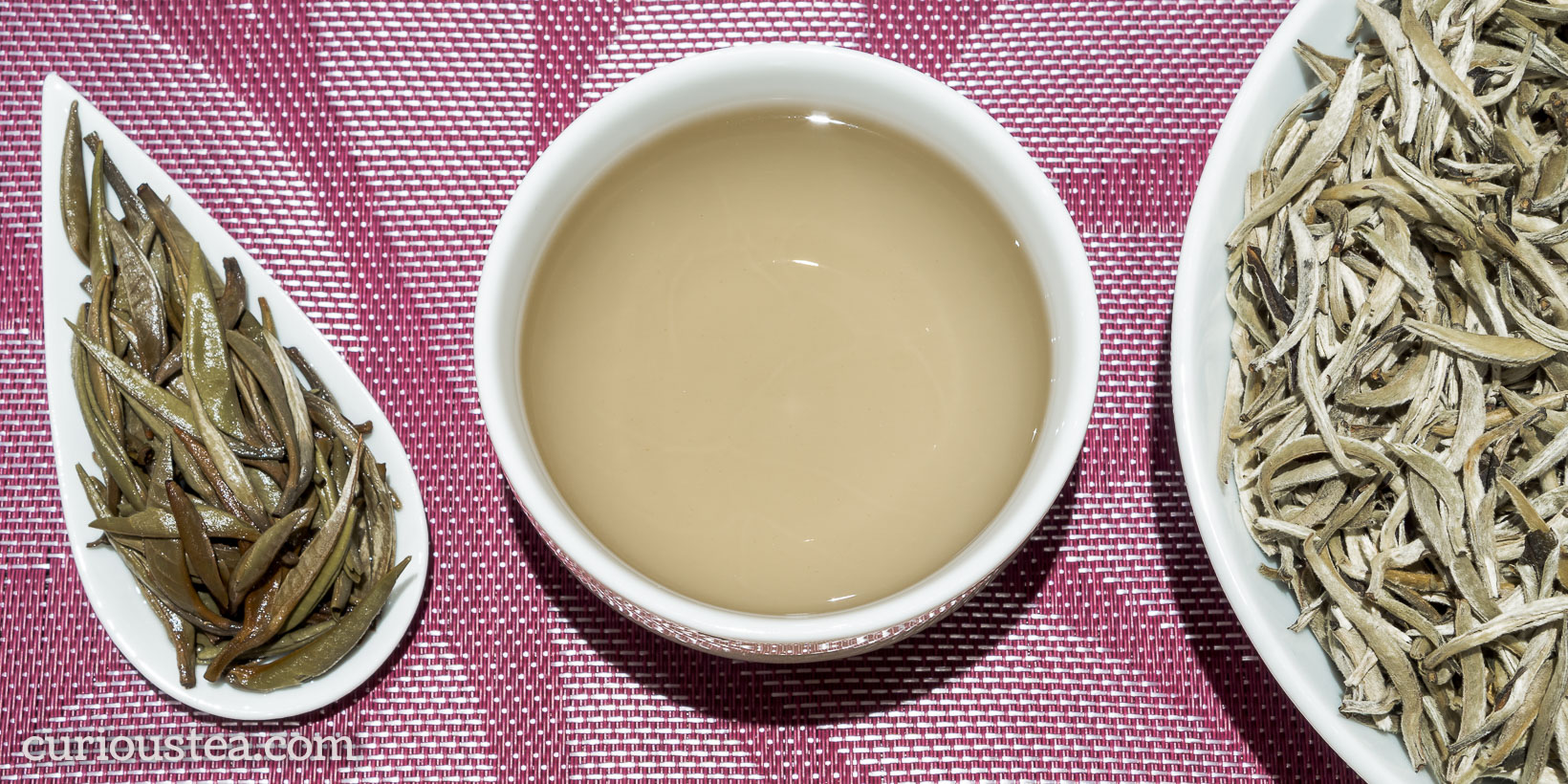
Yin Zhen Yunnan Silver Needle (雲南銀針) white tea is a light and delicate white tea grown in Yang Ta village located in Jinggu Dai and Yi Autonomous County in Pu’er, Yunnan Province. Made from Camellia taliensis, it is a little more unusual when compared to classic Silver Needle white teas from Fujian Province. Grown at a plantation of 40-60 year old trees at an altitude of around 1,700m, it was harvested in March 2018.
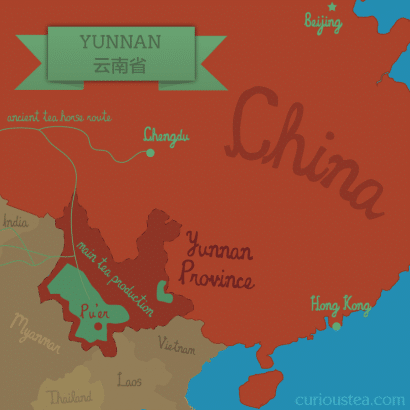
This Yin Zhen Yunnan Silver Needle is made from fine young buds of Camellia taliensis. The taliensis species is a wild relative of Camellia sinensis and is closer related to Camellia sinensis var. assamica than to Camellia sinensis var. sinensis. Given the closer relation to assamica, it is perhaps not surprising that it is mostly found in the wild in Yunnan Province and surrounding areas in Thailand and Burma. In Yunnan Province taliensis is used to make white, black and pu-erh teas. We currently stock a black version of this tea, Dian Hong Da Li Cha in our shop.
The tender leaves of this Yin Zhen Yunnan Silver Needle have been carefully hand processed to create neat silver needles. There are plenty of white ‘hairs’ on the leaves, indicating a very high quality of both the leaf and processing. The pale liquor is very clear and bright, lightly darkening as the tea cools. It has a slight vegetal and woody aroma. The clean taste has a herbaceous profile with vegetal and sweet notes of spinach, salad leaves and cucumber. The aftertaste is crisp, with lightly sweet, fruity and woody notes. This tea is extremely easy-going with a fresh, cleansing taste.
This tea is best brewed at 90°C for 3-4 minutes according to your taste, brewing multiple times. Like with all white teas, you can experiment with lower temperature and longer steeping time as an alternative way of brewing.
You can also buy Yin Zhen Yunnan Silver Needle white tea in our online shop.
Santikhiri Green Heart Oolong
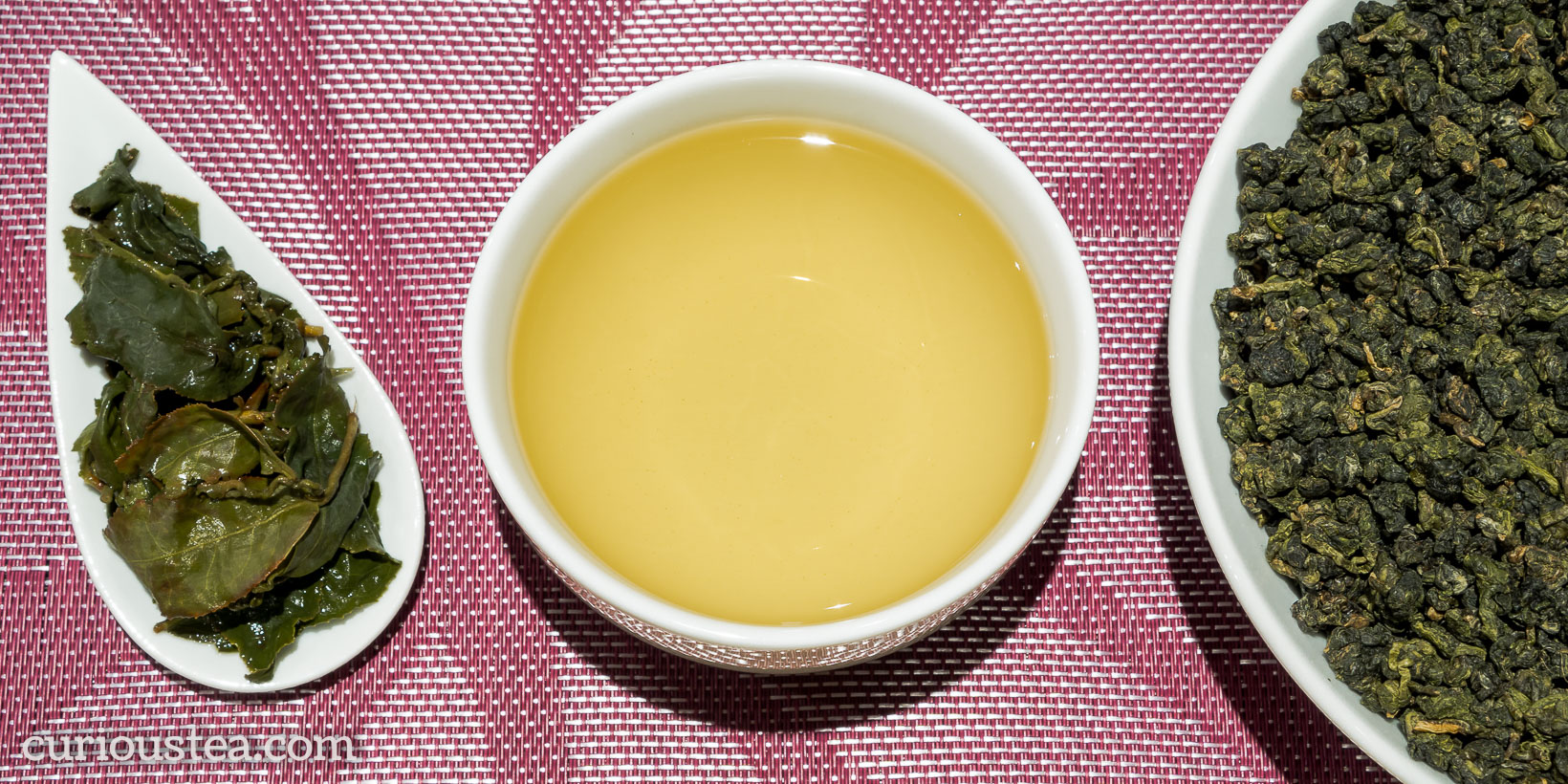
Santikhiri Green Heart Oolong is a lightly oxidised oolong that is produced from a Taiwanese Qing Xin or ‘Green Heart’ cultivar. This oolong comes from around Santikhiri village (formerly Mae Salong) that is located in Mae Fa Luang District and around the highlands of Doi Mae Salong mountain, close to the border with Burma and Laos. Santikhiri Green Heart is an organic oolong tea that is grown at an altitude of around 1,200-1,600 metres and was plucked in April 2018. We source this tea directly from the owner of the plantation in Doi Mae Salong.
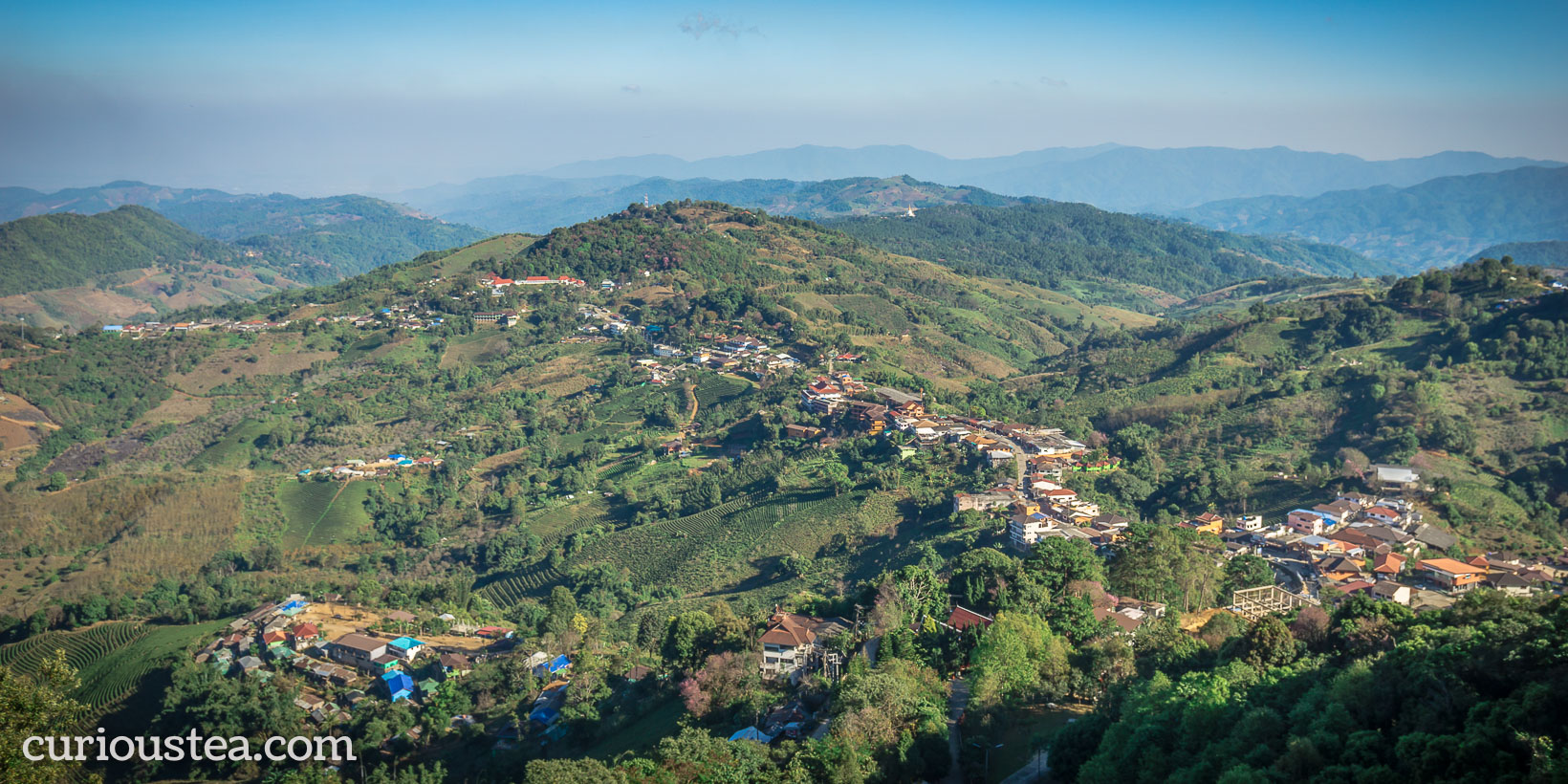
This Green Heart Oolong tea is made from the Taiwanese Qing Xin or ‘Green Heart’ (青心) cultivar. This cultivar is especially favoured for making characterful floral lightly oxidised oolongs. This particular tea undergoes minimal oxidation, resulting in a very ‘green’ profile. The floral notes are not as pronounced, instead they are finely balanced by the more vegetal and herbaceous taste. The taste is somewhat reminiscent of a good Anxi Tie Guan Yin rather than a more expressively floral Taiwanese oolong.
Santikhiri Green Heart Oolong comes in tightly rolled dark green leaves that produce a pale golden-green clear liquor with a light vegetal and floral aroma. The verdant and floral profile has notes of fresh green vegetables, with a lightly drying, refreshing aftertaste. Overall this is a light oolong that is less complex that its Taiwanese counterparts, yet exhibiting classic green oolong characteristics. It is a rather appealing light green oolong that is delicate and refreshing.
We suggest brewing at 90°C for 3-4 minutes according to your taste. It can be brewed 3+ times.
You can also buy Santikhiri Green Heart Oolong tea in our online shop.
Darjeeling Gopaldhara First Flush
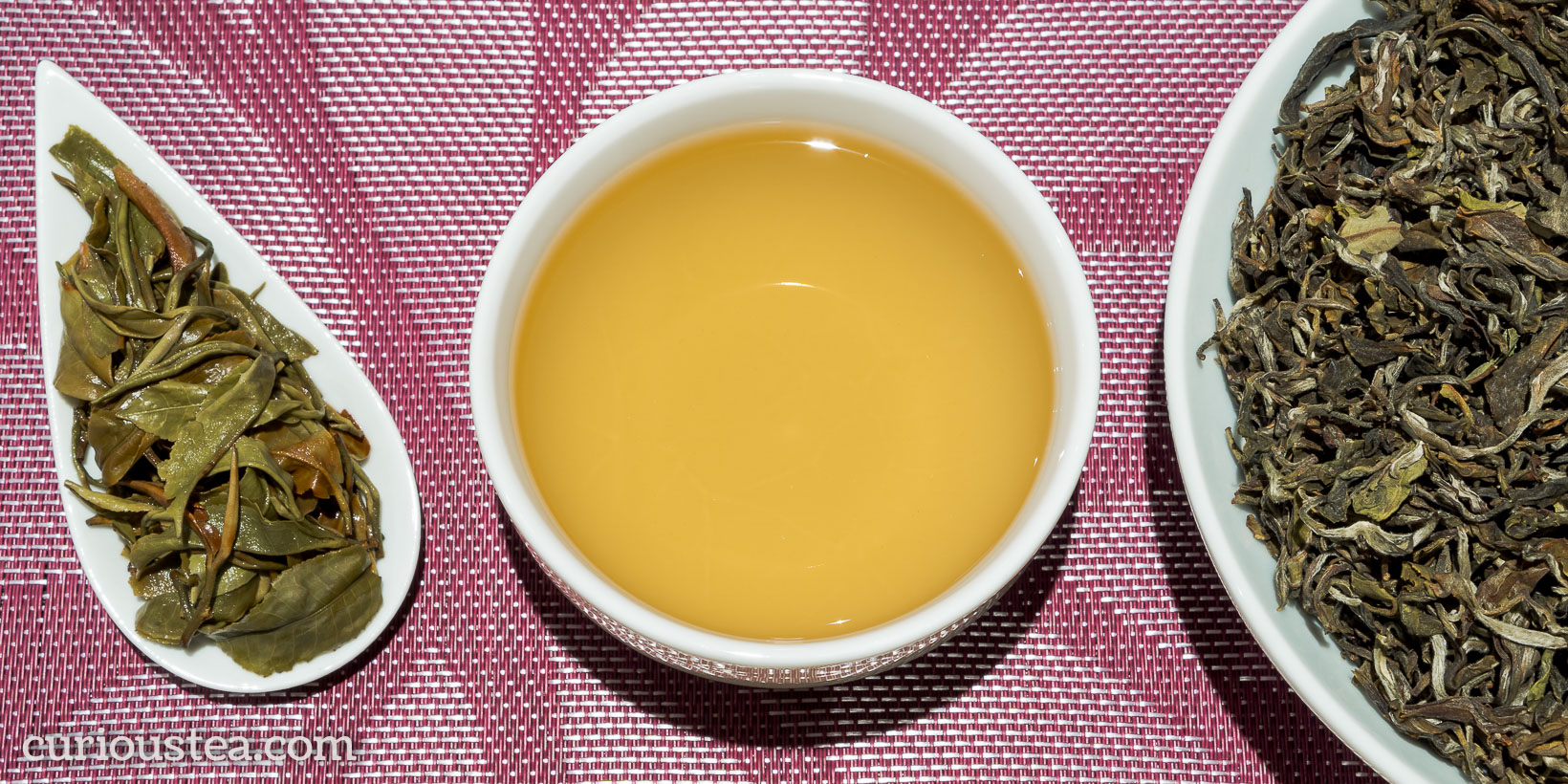
Darjeeling Gopaldhara ‘Classic’ First Flush is a minimally oxidised Darjeeling from Gopaldhara Tea Estate. Made from leaves harvested from Old China and China Hybrid bushes in April, it has a fresh, fruity character. As it is very lightly oxidised, it has a light taste with pronounced flavours. This batch is FTGFOP1 ‘Classic’ from the First Flush crop picked in April 2018.
Like all our Gopaldhara teas, we source this tea directly from Rishi Saria, the owner and director of Gopaldhara and Rohini Tea Estates. Gopaldhara Tea Estate is nestled in the Mirik Valley, in the Himalayan foothills, and is one of the highest tea estates in Darjeeling with elevations of between 1,700m and 2,100m. It is renowned for producing teas of exceptional quality and very often quite unusual character.

This ‘Classic’ First Flush Darjeeling from Gopaldhara Tea Estate is a minimally oxidised tea that has a light traditional First Flush character. It is created by Gopaldhara to achieve a flavour with the most typical lightly oxidised First Flush profile that is light, yet full of character. The bushes used to create it are a mixture of China Hybrid and old China bushes originally planted by the British over 135 years ago. The plants experience low temperatures over the winter months so the first shoots experience slow growth, resulting in a concentrated flavour. The young leaves used in making of this tea consist of single leaf or two leaves and a bud, lending a smoothness to the favour, while also providing a lasting, satisfying aftertaste.
Darjeeling Gopaldhara First Flush black tea has dark mixed wiry leaf that is rather large in size for a Darjeeling tea. The leaves have a light colour, immediately pointing towards the minimal oxidation. The light yellow-coloured liquor is bright with a slight mineral aroma to it. Overall you can immediately sense that it is a very light Darjeeling. The character is supremely smooth, bright and has a pronounced fruity profile. The fresh taste is juicy, with notes of citrus peel. It has a prominent long-lasting aftertaste that has a pleasant degree of sweetness and astringency.
We suggest brewing parameters of 90°C for 4-5 minutes according to your taste, brewing multiple times.
You can also buy Darjeeling Gopaldhara ‘Classic’ First Flush tea in our online shop.
Wild Forest Assamica
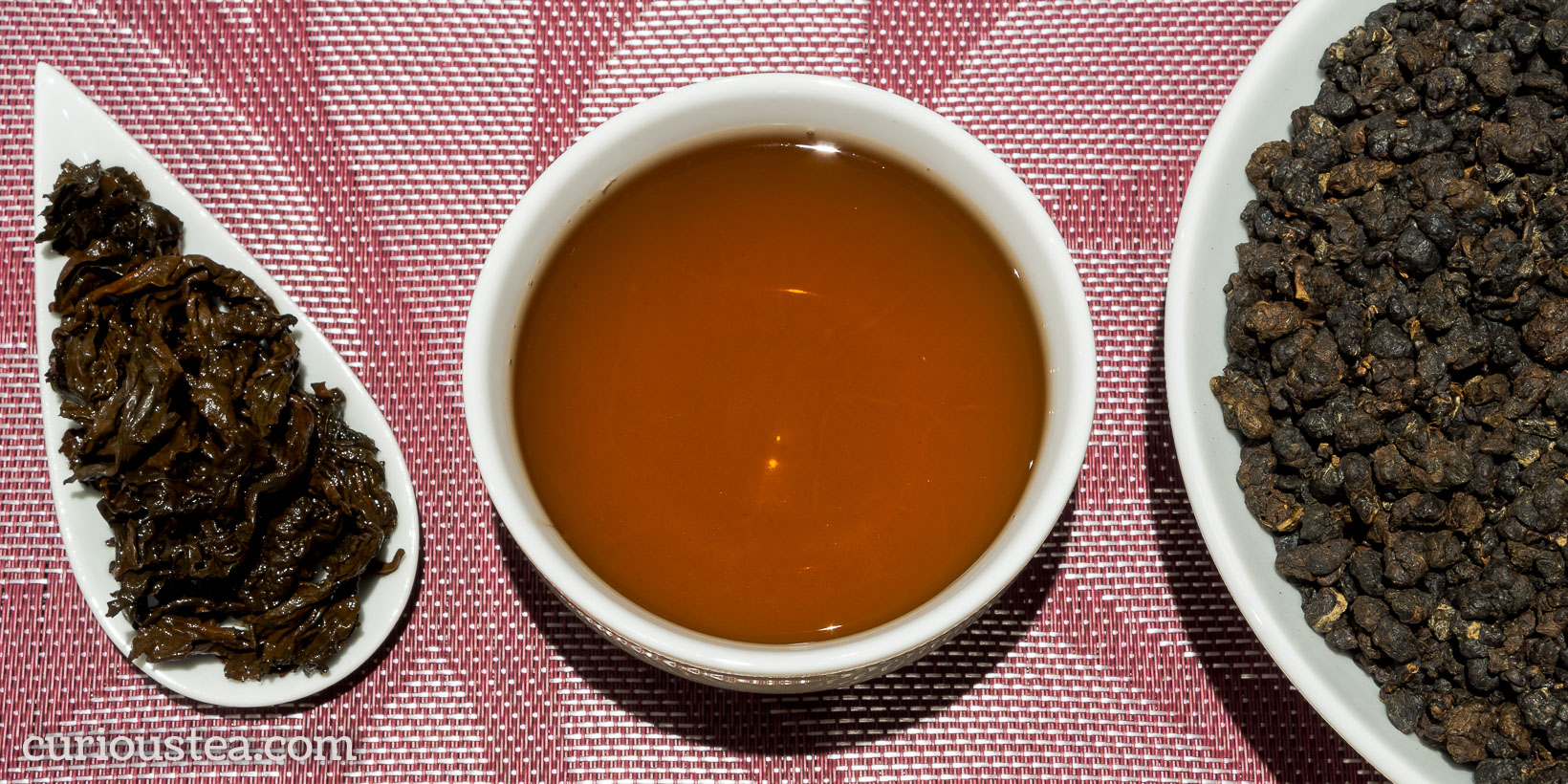
Wild Forest Assamica is a black tea that is picked from wild assamica tea trees found in forest of Chiang Rai in northern Thailand, right on the border with Burma. Unusually, it is processed in a style most similar to a rolled Taiwanese black tea, resulting in a fantastic fruity character. The trees grow wild deep in ancient forests far away from human interference at an altitude of around 1,500 metres. The picking for this batch was in May 2018. We source this tea directly from the tea manufacturer in Doi Mae Salong.
The trees that this Wild Forest Assamica tea is picked from are of local Thai stock, which is a local Camellia sinensis var. assamica. It is a native tree to this part of Thailand that has been growing here for millions of years. Some of the older trees found in the jungles here are very tall and ancient. These trees tend to and do grow rather large, up to 5 metres, if not taller, depending on the surrounding environment. The same leaves are also used for making pu-erh tea both in Thailand and in Yunnan Province in China, where they are often sold to.
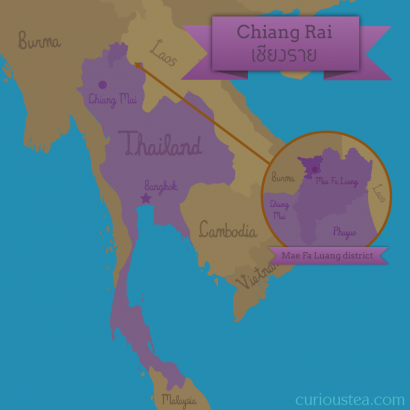
It is thought that this tree type is the first tea plant to come into existence; it is found in northern Thailand but also in Yunnan Province in China, northern Laos, eastern Myanmar and western Vietnam. The wild trees of this assamica varietal grow in this part of the world on their own without human interference of fertilisers or pesticides. While this tea has no organic certification, it is grown to organic standards as it is wholly picked from wild trees that are found in virgin forests of Chiang Rai.
The leaves of this Wild Forest Assamica are picked deep in the forests, after which they are brought to the factory in Doi Mae Salong for processing. Unusually, the tea master decided that the best way of processing this into a black tea is by following a Taiwanese style of processing whereby the leaves are tightly rolled. They are fully oxidised but do resemble a tightly rolled dark oolong tea in appearance. When brewed they open up into large dark leaves. As they open slowly, multiple brewing is advised to fully appreciate the developing flavours. The liquor has a rich amber colour with a lightly sweet and malty aroma. The tart, fruity profile of this tea has a creamy and soft texture with lightly floral and malty notes. The aftertaste is supremely smooth and long-lasting. It reminds us of a tart and fruity GABA Oolong, while having a much more complex profile and definite black tea characteristics.
We suggest brewing at 90°C for 3-4 minutes according to your taste. It can be brewed around 3 times depending on your taste preferences.
You can also buy Wild Forest Assamica black tea in our online shop.
We really do hope that you enjoy the tea selection for May and are looking forward to the next selection in our June box!
If reading this has made you curious about our teas, but you don’t yet subscribe to a monthly tea selection, you can sign up for our tea boxes in just a few clicks. We ship worldwide from London, UK.
We always love to hear from you, so if you have any questions, suggestions or just want to chat about tea, email us at contact@curioustea.com, via our Facebook page or via Twitter.
You can also follow us on Instagram for pretty tea photos.
Happy tea discoveries!

